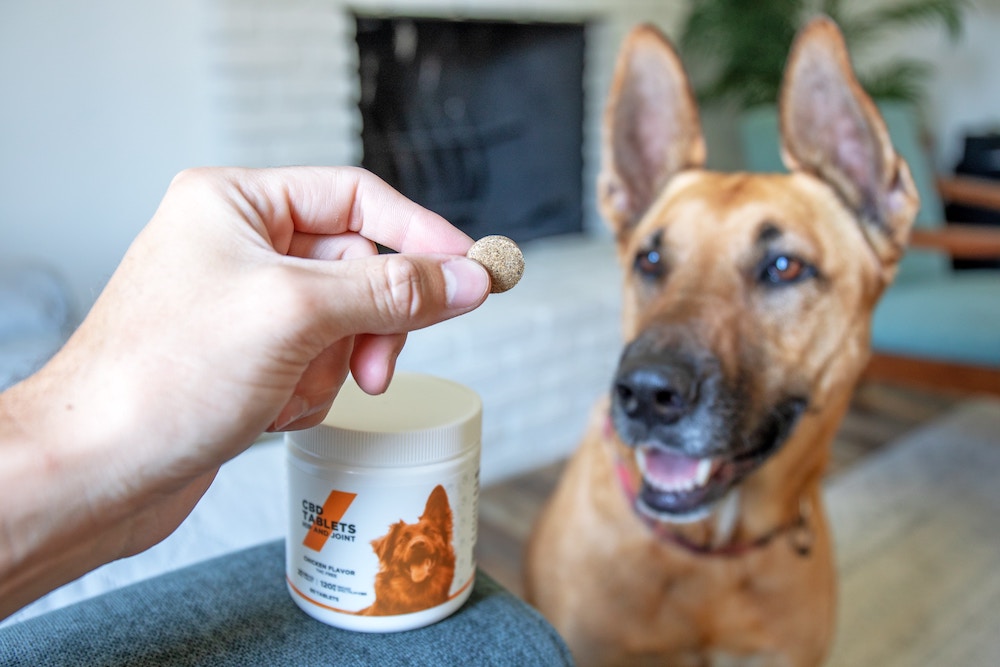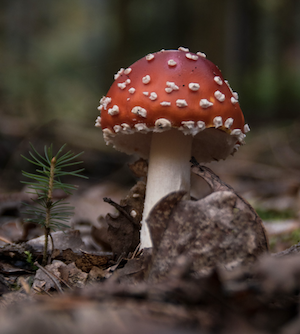As a seasoned CBD expert, it’s crucial to address the growing concern surrounding anxiety in dogs. Canine anxiety is a prevalent and often distressing problem that many pet owners are confronted with today. Dogs, our faithful companions, can experience various forms of anxiety, such as separation anxiety, noise phobias, or generalized anxiety disorder. These conditions not only affect their well-being but can also lead to behavioral problems if left unaddressed.
The rise in anxiety among dogs can be attributed to a multitude of factors, including changes in modern lifestyles, urbanization, and even the recent increase in loud noises from fireworks and thunderstorms. Understanding the scope of this issue is essential for pet owners seeking solutions to alleviate their furry friends’ suffering.
CBD as a Potential Solution
In recent years, CBD (cannabidiol) has emerged as a promising natural remedy for various health issues in both humans and animals. As a CBD expert, I’m here to explore how this compound, derived from the hemp plant, can offer a potential solution to the rising problem of anxiety in dogs.
CBD is gaining recognition for its therapeutic properties, including its ability to interact with the endocannabinoid system, a complex network of receptors that plays a crucial role in regulating various physiological processes, including mood and stress responses. This interaction suggests that CBD may hold the key to helping our canine companions find relief from their anxiety.
As we embark on this journey of exploration, my goal is to provide you with a well-rounded understanding of CBD’s role in addressing anxiety in dogs, empowering you to make informed decisions about your pet’s well-being. Let’s embark on this enlightening path to discover the potential benefits of CBD treats for dogs with anxiety.
Types of Anxiety in Dogs
Recognizing the symptoms of anxiety in your furry friend is crucial for early intervention. Common signs of anxiety in dogs include:
- Excessive Panting and Pacing
- Destructive Behavior
- Excessive Barking or Howling
- Trembling or Shivering
- Loss of Appetite
- Withdrawal or Clinginess
Canine anxiety is a complex issue, and as a CBD expert, it’s essential to recognize that there are various forms of anxiety that our four-legged companions may experience. Understanding these different types of anxiety is a critical first step in finding effective solutions.
Separation Anxiety
This is one of the most prevalent forms of anxiety in dogs. Dogs with separation anxiety become distressed when left alone and may engage in destructive behaviors, excessive barking, or even attempt to escape.
Noise Phobias
Many dogs are highly sensitive to loud noises like fireworks, thunderstorms, or construction sounds. Noise phobias can cause extreme anxiety and panic in dogs.
Generalized Anxiety Disorder
Some dogs experience a more generalized form of anxiety that isn’t specific to certain situations. They may exhibit constant restlessness, excessive panting, and nervous behaviors.
As a CBD expert, I emphasize the significance of addressing anxiety in pets promptly. Untreated anxiety can have a severe impact on a dog’s overall well-being and quality of life. It can lead to chronic stress, which may contribute to various health issues, including digestive problems, skin conditions, and even a weakened immune system.
Additionally, unmanaged anxiety can strain the bond between a dog and its owner, leading to frustration and potential behavior problems. Therefore, recognizing and proactively addressing anxiety is not only vital for your dog’s health but also for maintaining a harmonious and loving relationship with your beloved pet.
How CBD Can Help Dogs with Anxiety
As a CBD expert, understanding the mechanisms through which CBD can potentially address anxiety in dogs is essential. CBD interacts with the endocannabinoid system (ECS), a complex network of receptors found throughout the bodies of mammals, including dogs.
When CBD is introduced into a dog’s system, it interacts primarily with two types of receptors in the ECS: CB1 and CB2 receptors. These interactions can modulate various physiological processes, including mood and stress responses.
CB1 Receptors: These receptors are primarily found in the brain and central nervous system. When CBD binds to CB1 receptors, it can influence the release of neurotransmitters like serotonin, which plays a key role in regulating mood. This can potentially lead to a calming effect and a reduction in anxiety-related behaviors.
CB2 Receptors: These receptors are predominantly located in the immune system and peripheral tissues. CBD’s interaction with CB2 receptors may help regulate the immune response and reduce inflammation, which can be associated with stress and anxiety.
Benefits of CBD for Dogs
CBD may help promote relaxation and reduce the intensity of anxiety-related behaviors, such as excessive barking or pacing.
By modulating the ECS and influencing neurotransmitter activity, CBD may aid in reducing overall stress levels in dogs.
Unlike THC (tetrahydrocannabinol), another compound found in cannabis, CBD is non-psychoactive. This means it won’t produce a “high” in dogs or humans.
CBD is generally considered safe for dogs when administered correctly and in appropriate doses. It’s a natural alternative to pharmaceuticals that may have side effects.
Finding the Right CBD Treats
When seeking the right CBD treats for your dog’s anxiety, it’s essential to consider various quality factors to ensure your pet receives the best possible treatment:
CBD products for dogs come in two primary forms: full-spectrum and isolate. Full-spectrum CBD contains a wide range of cannabinoids and terpenes, potentially offering enhanced therapeutic benefits through the entourage effect. Isolate, on the other hand, contains pure CBD. Choose the type that aligns with your dog’s needs and your preferences.
Opt for CBD products derived from organic hemp sources. Organic CBD is typically free from harmful pesticides and chemicals that could negatively affect your dog’s health. Look for third-party lab testing to confirm the product’s purity and potency.
Examine the treat’s ingredient list to ensure it contains high-quality, dog-friendly components. Avoid treats with unnecessary additives, preservatives, or artificial flavors.
Dosage Guidelines for Dogs
Determining the correct dosage of CBD treats for your dog is crucial for achieving the desired effects while avoiding potential side effects. Dosage can vary based on factors such as your dog’s size, age, and the severity of their anxiety.
Begin with a low dose and observe your dog’s response. If needed, gradually increase the dosage until you find the right balance where your dog experiences relief without adverse effects.
Always consult with your veterinarian before introducing CBD to your dog’s routine. They can provide personalized dosage recommendations based on your dog’s specific needs and health conditions.
Pay close attention to the manufacturer’s recommended dosage on the product label. This can serve as a starting point for determining the appropriate amount for your dog.
The type and severity of your dog’s anxiety may influence the dosage. For instance, dogs with severe separation anxiety might require a higher dosage than those with mild, occasional anxiety.
Potential Side Effects and Precautions
Some dogs may experience mild side effects like drowsiness, dry mouth, or diarrhea. These side effects are usually temporary and can often be mitigated by adjusting the dosage.
CBD can interact with certain medications your dog may be taking. Consult your veterinarian to ensure there are no adverse interactions with your dog’s current medications.
Dogs, like humans, can have allergies. Monitor your dog for any signs of allergic reactions when introducing a new CBD treat, such as itching, swelling, or difficulty breathing.
Ensure you’re using high-quality CBD products to minimize the risk of adverse effects. Low-quality products may contain contaminants or inconsistent CBD levels.
By carefully considering these factors and working closely with your veterinarian, you can confidently choose the right CBD treats for your dog’s anxiety and provide them with a safe and effective solution for their well-being.
Safe Methods for Giving CBD Treats
Administering CBD treats to your dog requires a thoughtful and safe approach to ensure they receive the full benefits without any harm. When introducing CBD treats to your dog’s routine, begin with a small dose. This allows you to gauge their tolerance and observe any initial reactions.
Many CBD treats can be easily mixed with your dog’s regular food. This can help mask the taste and make administration more enjoyable for your pet.
Alternatively, you can give the treat directly to your dog. Ensure they chew and swallow it properly to ensure proper absorption.
Maintain a consistent schedule for giving CBD treats to your dog. Consistency helps establish a routine and ensures that your dog receives a steady supply of CBD for anxiety management.
After administering CBD treats, it’s essential to closely monitor your dog’s response. Pay attention to changes in your dog’s behavior. Look for signs of reduced anxiety, such as decreased restlessness, calmer demeanor, or less barking.
Consider keeping a journal to track your dog’s progress. Note the dosage, time of administration, and any observed changes in behavior or anxiety levels.
If you notice any unexpected or concerning changes in your dog’s behavior or health, consult your veterinarian immediately. They can provide guidance and adjust the treatment plan if necessary.
The ideal CBD dosage for your dog may require adjustments over time:
Titration
Titration is the process of fine-tuning the dosage to achieve the desired effects. If your dog’s anxiety remains unresolved or if side effects occur, consider adjusting the dosage in consultation with your veterinarian.
Weight and Age Consideration
Keep in mind that a dog’s size and age can impact their ideal CBD dosage. Puppies and smaller breeds may require lower doses, while larger, older dogs may need higher amounts.
Response Variability
Dogs can react differently to CBD, so there is no one-size-fits-all dosage. Be patient and open to adjusting the dosage until you find what works best for your individual pet.
Regular Check-Ins
Schedule regular check-ins with your veterinarian to assess your dog’s progress and make any necessary dosage adjustments. Your vet can also provide guidance on how to best integrate CBD into your dog’s overall wellness plan.
By following these safe administration methods, closely monitoring your dog’s response, and adjusting the dosage as needed, you can optimize the use of CBD treats to help alleviate your pet’s anxiety effectively and responsibly. Remember that your veterinarian is an invaluable partner in this journey, providing expert guidance tailored to your dog’s unique needs.
Alternative Approaches to Managing Canine Anxiety
While CBD is a valuable option for managing canine anxiety, it’s essential to explore alternative approaches to provide comprehensive care for your beloved pet.
Working with a professional dog trainer or behaviorist can be highly effective in addressing the root causes of your dog’s anxiety. Techniques such as desensitization, counterconditioning, and positive reinforcement can help modify undesirable behaviors.
Pheromone-based products, such as Adaptil for dogs, release synthetic calming pheromones. These can help alleviate anxiety-related behaviors when used in diffusers, sprays, or collars.
Evaluate your dog’s daily routine and environment. Ensuring they receive enough exercise, mental stimulation, and a comfortable, secure living space can significantly reduce anxiety.
In certain cases, your veterinarian may recommend prescription medications specifically designed to manage anxiety in dogs. These should be administered under professional guidance.







